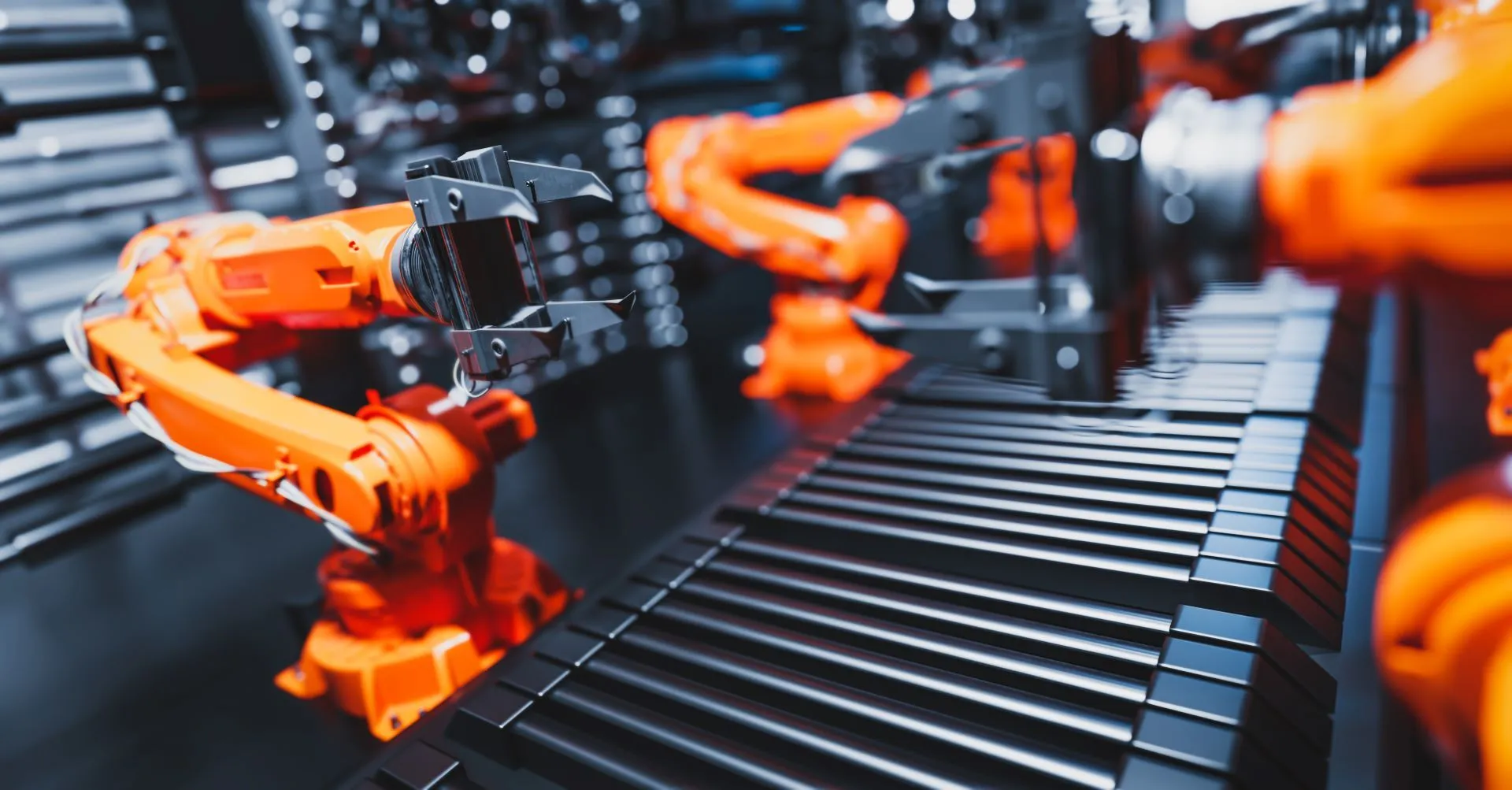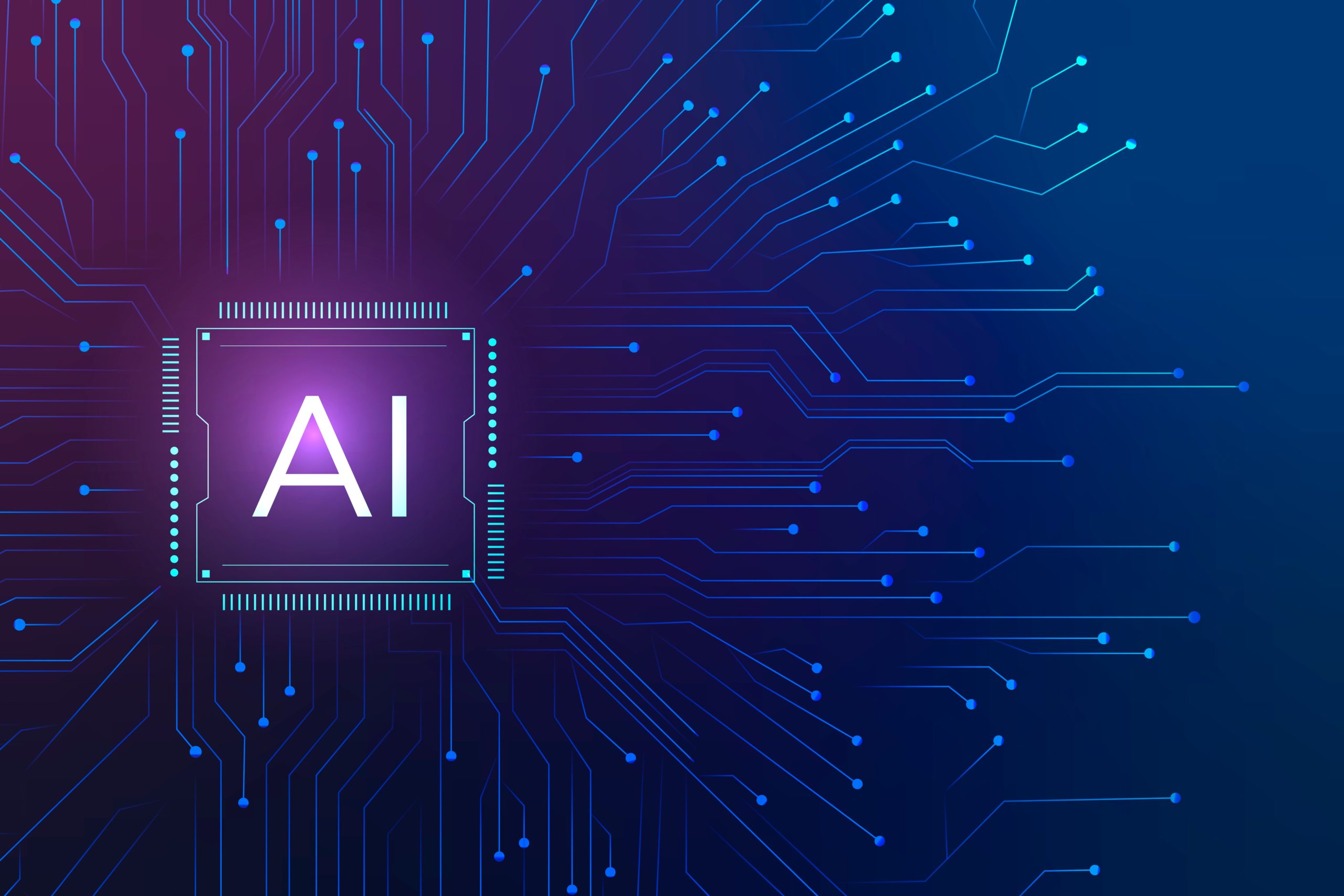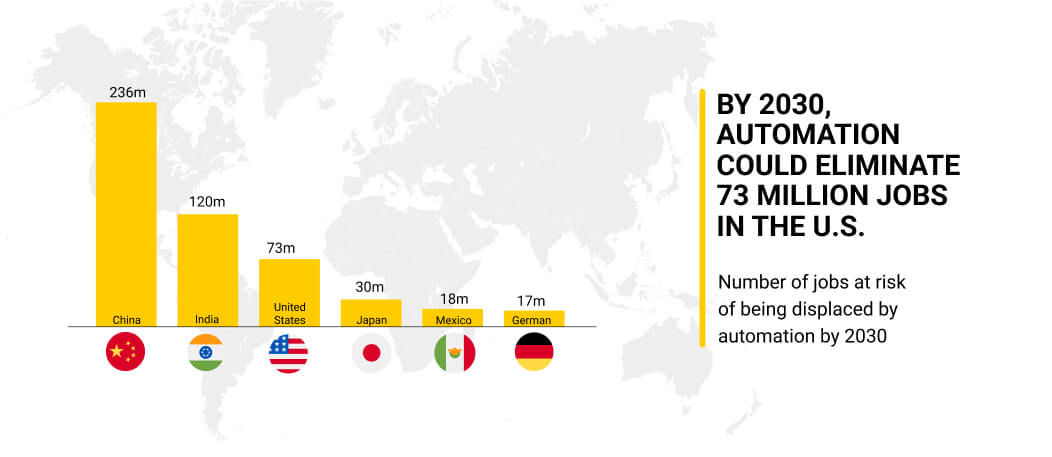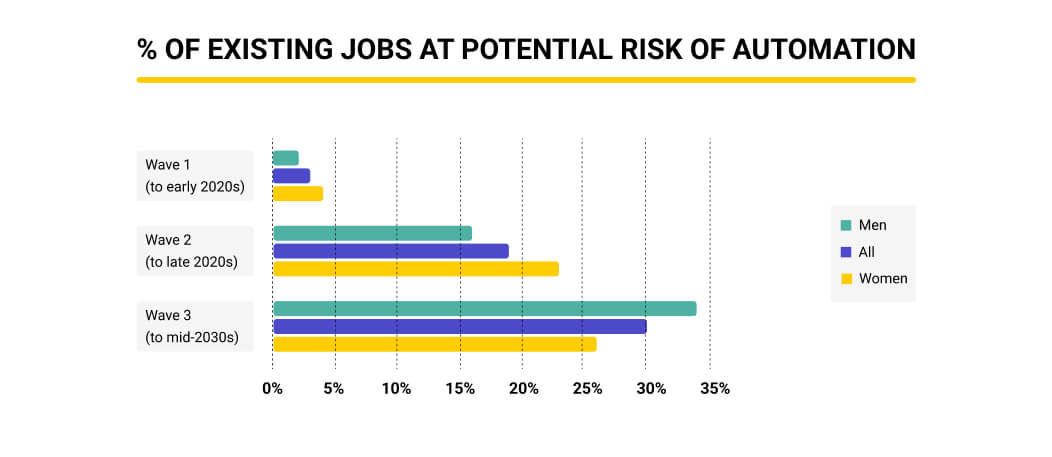AI's Impact On Employment - The Current State Of The Job Market
Artificial intelligence commonly known as AI is rapidly changing the world, and the job market is no exception. Artificial intelligence (AI) is already being used to automate tasks in a wide range of industries, and this trend is only going to continue in the years to come. This raises the question of what the future holds for employment. Will AI lead to widespread job losses, or will it create new opportunities? In this article, we will explore AI's impact on employment, and discuss what we can do to prepare for such a future.
Author:Hajra ShannonReviewer:Paula M. GrahamAug 07, 2023222 Shares36.9K Views
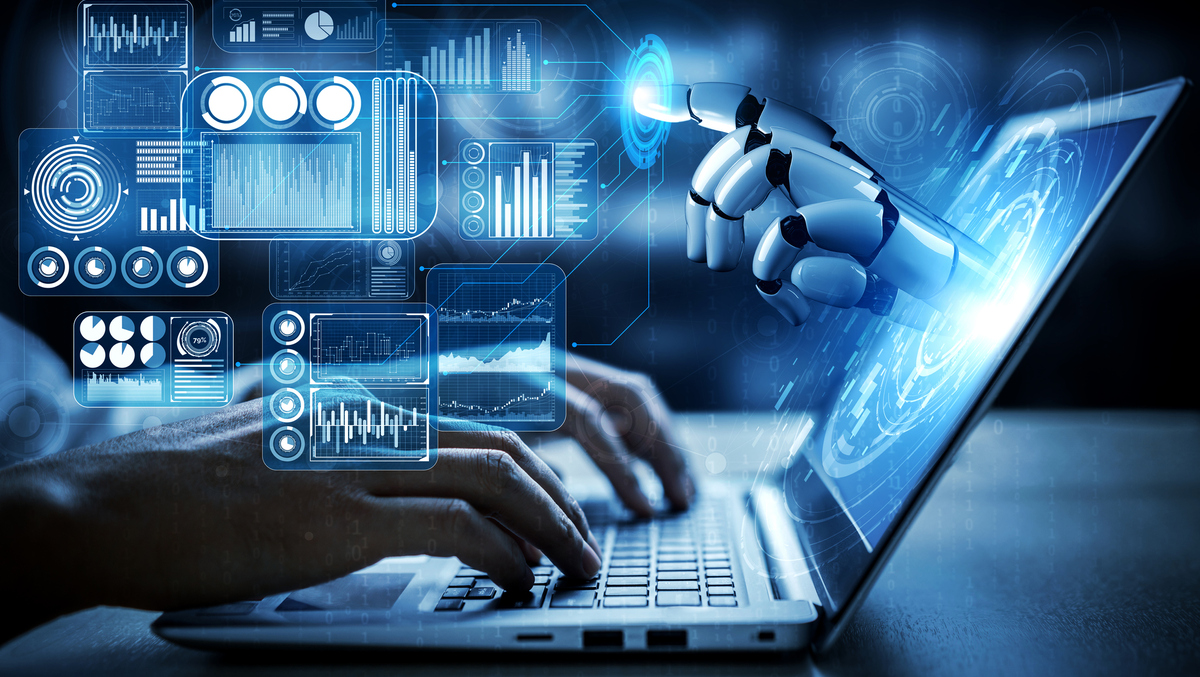
Artificial intelligence commonly known as AI is rapidly changing the world, and the job market is no exception. Artificial intelligence (AI) is already being used to automate tasks in a wide range of industries, and this trend is only going to continue in the years to come.
This raises the question of what the future holds for employment. Will AI lead to widespread job losses, or will it create new opportunities? In this article, we will explore AI's impact on employment, and discuss what we can do to prepare for such a future.
The Evocative Parallels - AI And Robotics In Causing Massive Layoffs
The history of technology is littered with examples of new technologies that have led to job losses in the name of betterment of the humanity. In the industrial revolution from the late 1700s to early 1800s the invention of the steam engine, for example, led to the decline of the handloom weavers. And the introduction of the assembly line in the early 20th century led to the loss of millions of jobs in the manufacturing sector.
In recent years, we have seen a similar trend with the rise of robotics. Robots are now being used to automate tasks in a wide range of industries, including manufacturing, healthcare, and customer service. This has led to job losses in some sectors, but it has also created new opportunities in others.
For example, the rise of robotics in the manufacturing sector has led to the creation of new jobs in the design, programming, and maintenance of robots. And the rise of AI in the healthcare sector has led to the creation of new jobs in the development and application of AI-powered medical devices.
Tracing The Path - A Brief History Of AI Development
The history of AI can be traced back to the early 1950s when a group of scientists at Dartmouth College held a workshop on the topic of "artificial intelligence." The workshop was a success, and it led to the development of some of the first AI algorithms.
Over time, AI has progressed through different stages, evolving from rule-based systems to machine learning and deep learning algorithms. Advances in computing power and access to vast amounts of data have accelerated the development and widespread integration of AI in various industries.
In recent years since AI has made significant progress. Today, AI is used in a wide range of applications, including facial recognition, machine translation, and fraud detection. AI is still evolving rapidly, with new advances being made all the time.
Empowering Industries - The Benefits Of AI In Major Fields
AI's adoption has yielded transformative benefits across major industries, leading to improved efficiency, productivity, and innovation. In healthcare, AI-powered diagnostic tools assist medical professionals in accurate disease detection and personalized treatment plans. The transportation sector leverages AI to develop autonomous vehicles, promising safer and more efficient transportation systems. Additionally, the financial industry relies on AI algorithms for fraud detection, risk assessment, and algorithmic trading, enhancing accuracy and security.
Here Are Some Of The Benefits Of AI In Major Fields
Manufacturing:AI can be used to automate tasks such as assembly, inspection, and quality control. This can lead to increased productivity and reduced costs.
Healthcare:AI can be used to diagnose diseases, recommend treatments, and provide personalized care. This can improve the quality of care and reduce costs.
Finance:AI can be used to analyze financial data, make investment decisions, and detect fraud. This can improve the efficiency of financial markets and protect investors from fraud.
Customer service:AI can be used to answer customer questions, resolve issues, and provide personalized recommendations. This can improve the customer experience and reduce costs.
The Emergence Of AI And Its Impact On Employment - Recent Trends And Layoffs
The exponential rise of AI has created a sense of urgency for businesses to embrace automation and cutting-edge technologies. Consequently, certain job roles that involve repetitive and routine tasks have been automated, leading to layoffs in industries seeking cost reduction and increased efficiency.
For example, AI-powered chatbots are now being used to answer customer questions in a wide range of industries. This is leading to job losses in the customer service sector. And AI-powered robots are now being used to automate tasks in manufacturing plants. This is leading to job losses in the manufacturing sector.
The displacement of human workers by AI systems has raised concerns about the future of employment and the need for proactive measures to adapt to the changing landscape.
Pondering The Future - Is AI The Ultimate Disruptor Of Jobs?
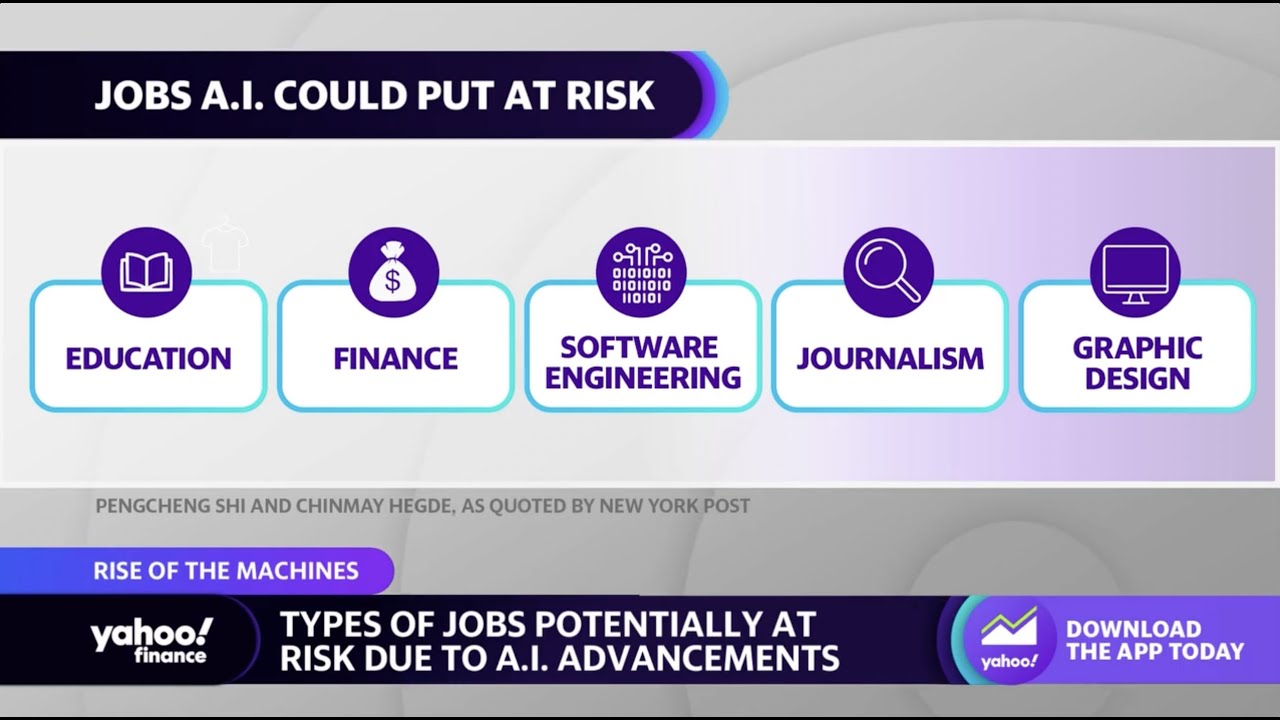
ChatGPT: How A.I. could impact the job market and employee skills
The use of artificial intelligence for day-to-day tasks has increased rapidly over the last decade. The May 2023 CfM-CEPR survey asked the members of its European panel to predict the impact of AI on global economic growth and unemployment rates in high-income countries over the upcoming decade. Most panelists think that AI is likely to boost global growth to 4–6% per annum (relative to an average of 4% over the past few decades). Most of the panel also believes that AI is unlikely to affect employment rates in high-income countries, with the remainder split between predicting an increase and a decrease in unemployment rates. Notably, most panelists indicate a great degree of uncertainty regarding their predictions, because AI is still in its infancy.
It is difficult to say for sure whether AI will lead to widespread job losses. However, it is clear that AI will have a significant impact on the job market in the years to come.
Some experts believe that AI will eventually lead to a post-scarcity society, in which there will be more jobs than people to fill them. Others believe that AI will lead to a period of widespread unemployment, as machines become capable of doing most of the work that is currently done by humans.
It is too early to say for sure what the future holds. However, it is clear that we need to start thinking about how we can prepare for the impact of AI on the job market.
Fields Already Altered - Work Fields Affected By AI
AI has already affected a wide range of work fields. AI's transformative impact is already evident in various industries and work fields. Manufacturing has witnessed significant automation, reducing the reliance on manual labor. Customer service has been revolutionized with the integration of chatbots and virtual assistants, streamlining routine inquiries and support processes. Data analysis and business intelligence have been revolutionized, allowing companies to make data-driven decisions more efficiently.
Here Are Some Of The Work Fields That Have Been Most Affected By AI
- Customer service:AI-powered chatbots are now being used to answer customer questions in a wide range of industries. This is leading to job losses in the customer service sector.
- Manufacturing:AI-powered robots are now being used to automate tasks in manufacturing plants. This is leading to job losses in the manufacturing sector.
- Transportation:AI-powered self-driving cars are being developed, which could lead to job losses in the trucking and taxi industries.
- Retail:AI-powered checkout systems are being developed, which could lead to job losses in the retail sector.
- Accounting:AI-powered accounting software is becoming increasingly sophisticated, which could lead to job losses in the accounting sector.
Jobs On The Edge - Occupations In Danger Due To AI's Rise
While AI presents numerous opportunities, certain job roles are more susceptible to automation and displacement. Occupations that involve repetitive tasks are at greater risk. Additionally, jobs that rely on basic problem-solving and decision-making could be automated using AI algorithms, potentially affecting industries like customer service and data analysis.
In addition to the work fields listed above, there are a number of other jobs that are at risk of being automated by AI in the future. These include:
- Telemarketers:AI-powered telemarketing systems are already being used, and they are becoming increasingly effective.
- Data entry clerks:AI-powered data entry software is becoming increasingly sophisticated, and it is already being used in some industries.
- Low-level lawyers:AI-powered legal research tools are becoming increasingly sophisticated, and they are already being used by lawyers to do some of their work.
- Paralegals:AI-powered paralegal tools are becoming increasingly sophisticated, and they are already being used by paralegals to do some of their work.
- Truck and Taxi drivers: AI-powered self-driving trucks are still in the early stages of development, but they are expected to become more widespread in the future.
Navigating The Future - How To Prepare For An AI-Driven Job Market
Amidst the rapid advancement of AI technology, individuals must proactively prepare themselves to thrive in the evolving job market. Here are some key strategies to avoid being replaced by AI:
- Embrace Lifelong Learning:Continuously update skills and knowledge to stay abreast of AI advancements and industry changes.
- Cultivate Adaptability:Foster a mindset of adaptability to embrace change and remain relevant in the face of technological disruptions.
- Nurture Creativity and Innovation:Develop skills that complement AI capabilities, such as creativity, critical thinking, and complex problem-solving.
- Collaborate with AI:Leverage AI technology as a tool to enhance productivity and effectiveness in your work, rather than viewing it as a threat.
- Pursue Specialization:Focus on specialized areas where human skills are still in demand and AI technologies have not yet made significant inroads.
- Changing our mindset:We need to change our mindset about work and the role of AI in the workplace. We need to see AI as a tool that can help us to be more productive and creative, rather than as a threat to our jobs.
People Also Ask
How Does AI Impact Employment And Or Society?
AI will help to create a safer, more efficient, and more productive work environment. AI has already begun to impact the job and work environment, and this trend will continue. While AI can automate many jobs or make workers more efficient, it also creates new job opportunities.
How Is AI Used In Employment?
AI is being used in the workplace to manage the full employee life cycle, from sourcing and recruitment to performance management and employee development. Recruitment and hiring are by far the most popular areas where AI is used for employment-related purposes.
How Can AI Increase Employment?
Many examples of jobs are already being created or enhanced by AI. Data analysts, AI trainers, and virtual assistants are just a few examples. Prompt engineers are the latest. These jobs require human input and creativity, and they can provide more meaningful and rewarding work than some currently automated jobs.
Conclusion
AI's impact on employment is a complex and multifaceted issue. There is no doubt that AI will have a significant impact on the way we work, but it is too early to say for sure what the long-term effects will be.
Some experts believe that AI will lead to widespread job losses, as machines become capable of doing more and more of the work that is currently done by humans. Others believe that AI will create new opportunities, as we find new ways to use AI to improve our lives and businesses.
It is likely that the truth lies somewhere in between. Advancement in technology has always been a double-edged sword and AI is no exception. While AI will bring a lot of fast-paced advancements in the future and will be way more efficient at both cost saving and speed. It will also cause, according to many experts, massive layoffs and we’re currently seeing the first wave of that. AI will certainly displace some jobs, but it will also create new ones. The key will be to ensure that everyone has the opportunity to participate in the workforce of the future, regardless of their background or skillset.
There are a number of things that we can do to prepare for the impact of AI on the job market. We need to continue to learn new skills and stay up-to-date on the latest technologies. We also need to change our mindset about work and the role of AI in the workplace. We need to see AI as a tool that can help us to be more productive and creative, rather than as a threat to our jobs.
The future of work is uncertain, but it is clear that AI will have a significant impact on the job market. We need to start thinking about how we can prepare for this impact and ensure that everyone has the opportunity to participate in the workforce of the future.
Here are some additional thoughts on the future of work and AI:
- The need for lifelong learning:In a world where AI is constantly evolving, it is more important than ever to be able to learn new skills and adapt to change. We need to make sure that everyone has access to lifelong learning opportunities so that they can stay ahead of the curve and remain competitive in the job market.
- The importance of creativity and problem-solving:AI is good at automating tasks that are repetitive and predictable. However, it is not as good at tasks that require creativity and problem-solving. These are the types of skills that will be in high demand in the future, as we need people who can think outside the box and come up with new solutions to problems.
- The need for collaboration:AI can help us to be more productive and efficient, but it cannot replace human collaboration. We need to be able to work together with AI to solve problems and achieve our goals.
The future of work is full of challenges, but it is also full of opportunities. By preparing for the impact of AI, we can ensure that everyone has the opportunity to participate in the workforce of the future and contribute to a more prosperous and equitable society.
Jump to
The Evocative Parallels - AI And Robotics In Causing Massive Layoffs
Tracing The Path - A Brief History Of AI Development
Empowering Industries - The Benefits Of AI In Major Fields
The Emergence Of AI And Its Impact On Employment - Recent Trends And Layoffs
Pondering The Future - Is AI The Ultimate Disruptor Of Jobs?
Fields Already Altered - Work Fields Affected By AI
Jobs On The Edge - Occupations In Danger Due To AI's Rise
Navigating The Future - How To Prepare For An AI-Driven Job Market
People Also Ask
Conclusion

Hajra Shannon
Author

Paula M. Graham
Reviewer
Latest Articles
Popular Articles

